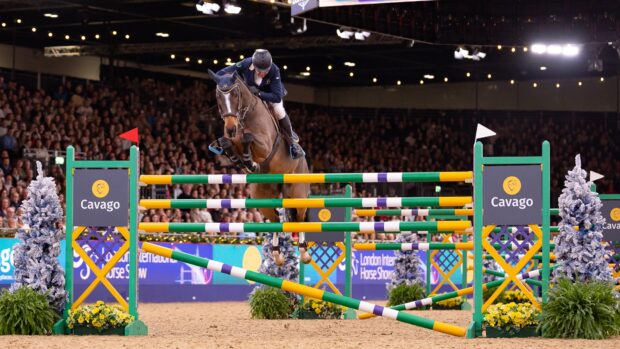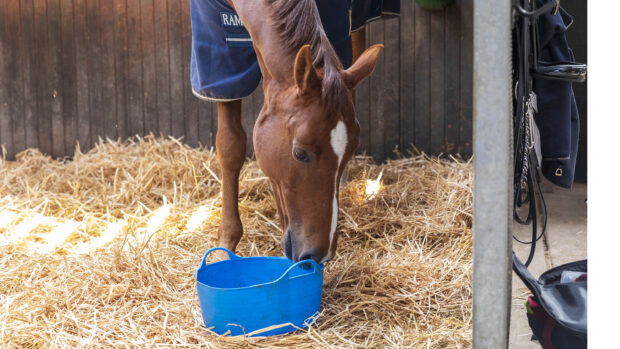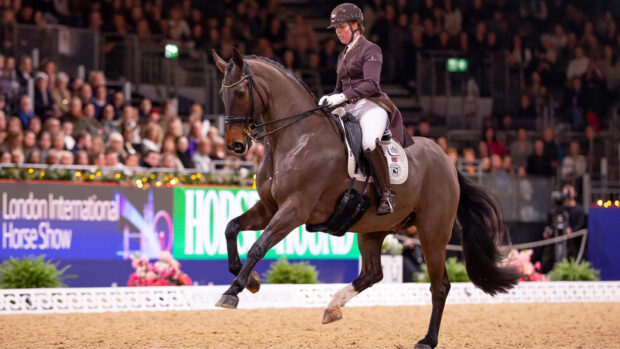Four horses have died of equine herpes (EHV) in Valencia in the “most serious outbreak in Europe for decades” as more cases are confirmed in other countries.
The Spanish showjumping event CES Valencia Spring Tour, was brought to halt after horses who had left the venue on 14 February became sick shortly after returning to their home countries and subsequently tested positive for EHV-1. More than 150 horses remained at the venue while tracing, testing, and treatment was under way. The FEI confirmed the Valencia outbreak is the neurological form of EHV-1. Horses who have this form can develop a lack of coordination, weakness, difficulty in urinating and defecating and being unable to stand. Horses that are severely affected by this form of the disease may have to be euthanased.
In an update today (1 March) the FEI confirmed four horses had died in Valencia over the weekend (27-28 February).
“We are currently experiencing what is probably the most serious EHV-1 outbreak in Europe for decades and, while the Spanish veterinary authorities are in charge onsite in Valencia, the FEI veterinary department is driving coordination of both the onsite and wider measures in direct cooperation with the Spanish national federation,” an FEI spokesman said.
“As many of you will have seen on social media and other online media platforms, there are some very distressing images and footage of extremely sick horses in Valencia. Tragically four horses have now died over the weekend, 84 on-venue horses are showing clinical signs and are being treated, and a further 11 are being treated in external clinics (nine in Valencia and two in Barcelona).
“The treatment of horses on venue has been vastly improved with additional veterinary support and medical supplies, with 21 veterinarians now on site.”
British showjumper Andrew Saethers had been due to travel home from Valencia on 22 February but remains on site with his four geldings, who are still experiencing a fever.
“It’s like a war zone here and I’m struggling,” he told H&H. “It’s an awful situation, there’s no other way of describing it.
“No one knows what to do; I’ve been going to shows all my life and have never experienced anything like this. The situation changes hourly, it’s a really dangerous virus and people need to be warned.”
Andrew said he had helped build a winch to help treat horses.
“There was no room in the clinics so we improvised and built a crane ourselves to help them out. The two vets that were here from the start deserve a medal – they ran from horse to horse. There’s now loads more vets so the horses are being checked twice a day whether they have symptoms [signs] or not,” he said.
“I’ve no idea when I’ll get to come home, it could be a long time. How I’m going to manage this financially I don’t know but first of all I need to get my horses healthy – I’m not going anywhere until they’re right.”
The FEI spokesman said the FEI ordered extra stabling at the venue so healthy and recovered horses can be better separated from sick animals to prevent further transmission. 44 temporary stables are being transported from the south of France today, and 22 boxes will also be supplied to the Valencia Equine Hospital to free up emergency treatment permanent stables.
“Additionally, the French national federation and the FEI have coordinated a supply of inflatable support mats to assist recumbent horses to stand. Rescue nets and emergency slings are being sourced from Switzerland. The French and German national federations are also supplying extra veterinarians,” said the spokesman.
“A member of the FEI veterinary department is onsite in Valencia and establishing improved lines of communication between the authorities, the Valencia organisers and athletes”.
The spokesman said as this strain of EHV-1 is “particularly aggressive” and there are now confirmed related outbreaks in France, Belgium and Germany, the FEI remains concerned that several sick and in-contact horses left the venue before it was closed for departures and that they may spread the disease.
“Although the FEI has blocked all these horses in the FEI database until the required testing protocols have been fulfilled, the FEI has again directly contacted national federations with horses that participated in Valencia requesting confirmation that they have contacted all their athletes that were in Valencia, that their national veterinary authorities have been informed about the outbreak and the returning horses, and that the necessary isolation of returning horses and in-contact horses has been put in place and compliance is being controlled,” said the spokesman.
“The FEI is also collating further information about related outbreaks and the measures put in place at local level to handle an outbreak. The veterinary department, supported by leading epidemiologists, is undertaking a constant risk assessment in order to take and advise on correct preventive measures.”
Article continued below…

Outbreak of equine herpes virus brings Spanish showjumping tour to a halt
The FEI veterinary department was informed on Saturday (20 February) that four horses who had left the venue on 14

Equine herpes virus – all you need to know right now

Subscribe to Horse & Hound magazine today – and enjoy unlimited website access all year round
The spokesman said while the priority remains the current outbreak and minimising the risk of further transmission, the FEI will be using data gathered from this outbreak to evaluate the effectiveness of the EHV-1 vaccine, by looking at which of the 752 horses that participated at Valencia had been vaccinated, which had symptoms or were asymptomatic, and which horses have died.
“The FEI will continue to work closely with the affected national federations and update the wider community as soon as new information becomes available,” he said.
“At this critical time we are grateful for the way our community continues to come together to deal with this outbreak.This is a true example of solidarity among our national federations in Europe working together with the FEI. And we owe a special vote of gratitude to the Spanish, French and German federations for all their incredible support in this time of need.”
Horse & Hound magazine, out every Thursday, is packed with all the latest news and reports, as well as interviews, specials, nostalgia, vet and training advice. Find how you can enjoy the magazine delivered to your door every week, plus options to upgrade to access our H&H Plus online service which brings you breaking news as it happens as well as other benefits.




